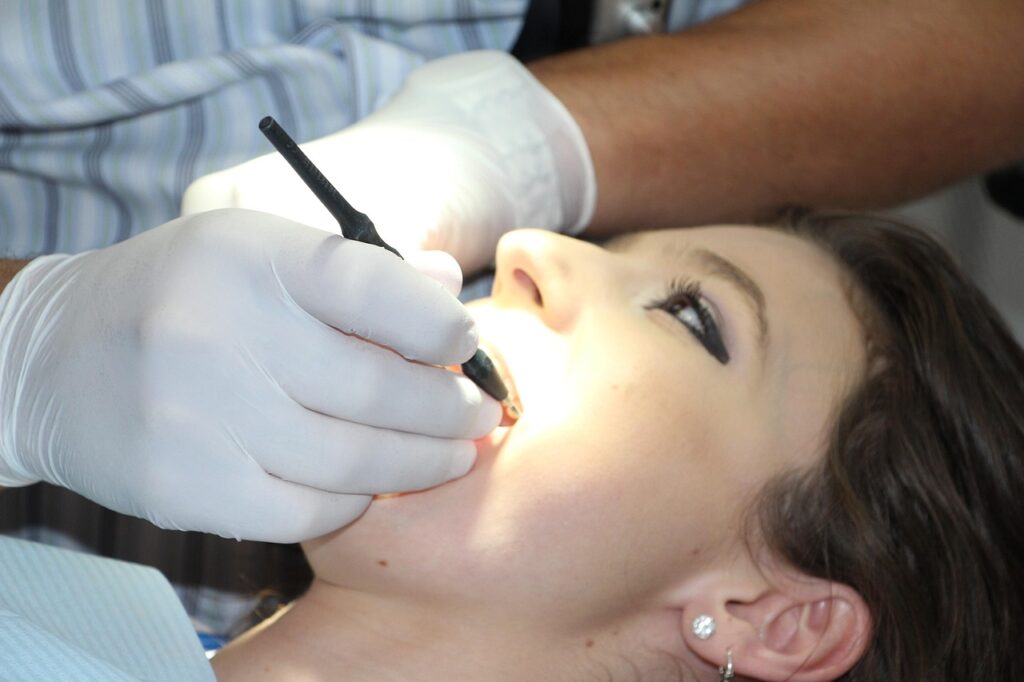How Long Until a Tooth Infection Kills You?
How Long Until a Tooth Infection Kills You?
Can a Tooth Infection Kill You?
Tooth infections may seem harmless at first, but in rare cases, they can turn deadly. A dental abscess is caused when bacteria invade the pulp of a tooth, usually due to decay, injury, or untreated cavities. Left alone, the infection can spread into the jawbone, bloodstream, or even the brain.
Is It Possible to die from an abscessed tooth?
Yes. Although modern dentistry makes it rare, severe infections from abscessed teeth can be fatal. If the bacteria enter your bloodstream—a condition called sepsis—it can trigger widespread organ damage.
How Quickly Could a Tooth Infection Become Fatal?
In some extreme cases, people have developed sepsis or other life-threatening complications within days. The rate depends on your immune system, underlying health, and how quickly the infection spreads.
What Happens When a Tooth Abscess Develops?
The infected area swells with pus, creating pressure and pain. Without drainage or treatment, the bacteria can escape into surrounding tissues, leading to bone loss, facial swelling, and in severe instances, difficulty breathing.
How Long Until a Tooth Infection Kills You?
The progression varies, but an untreated dental abscess can begin to spread in 24–72 hours, with fatal complications possible within a week. If swelling spreads to the neck or causes fever, it’s a sign the infection is entering dangerous territory.
Timeline of an Untreated Tooth Infection
-
Day 1–2: Mild pain and swelling
-
Day 3–5: Pus buildup, facial swelling
-
Day 6+: Risk of sepsis, airway blockage, or brain abscess
When Is a Tooth Infection Life-Threatening?
When symptoms like fever, chills, rapid heartbeat, difficulty swallowing, or confusion appear, it’s time for emergency medical care.
What Happens If You Don’t Treat a Tooth Abscess?
The infection can erode the jawbone, damage internal organs, or cause permanent disability. Worst-case scenario? It could be fatal.
🔗 Also Read: How to Know If a Tooth Infection Has Spread to the Bloodstream
Signs and Symptoms of a Life-Threatening Tooth Abscess
Recognizing the warning signs can save your life. Early symptoms are treatable, but ignoring them gives bacteria time to spread.
Early Symptoms of an Abscessed Tooth
-
Persistent toothache
-
Sensitivity to hot or cold
-
Swollen gums
-
Bad breath or bad taste in the mouth
Dangerous Symptoms That Require Immediate Help
-
High fever
-
Facial swelling
-
Trouble swallowing or breathing
-
Rapid heart rate
-
Confusion or fatigue
What Does a Serious Tooth Abscess Look Like?
It may appear as a red, swollen lump on the gum or cause visible swelling in the face or neck.
How Do You Know If a Tooth Infection Has Spread?
When an infection leaves the tooth area, it often gives clear systemic signs.
Signs That Infection Has Reached the Bloodstream
-
Fever over 101°F
-
Chills or sweating
-
Fatigue
-
Rapid heart rate or breathing
-
Low blood pressure
How to Identify if It’s Spreading Across the Body
If symptoms include jaw stiffness, neck pain, or difficulty breathing, it’s likely the infection has reached deeper tissues.
When to Go to the ER for a Tooth Infection
Any combination of fever, swelling, and breathing problems means go immediately. ERs can begin IV antibiotics and protect the airway.
Risk Factors That Increase Complications
Some individuals are more prone to severe outcomes from a tooth infection.
Who Is at Greater Risk of Severe Infections?
-
People with diabetes
-
Cancer patients
-
Individuals with suppressed immune systems
-
Elderly individuals
Lifestyle or Health Conditions That Aggravate Dental Abscesses
-
Smoking
-
Poor oral hygiene
-
High sugar diets
-
Delayed or no dental care
Can You Treat a Tooth Abscess at Home?
While some home remedies can reduce discomfort, they cannot eliminate the infection.
Are Home Remedies Effective?
Saltwater rinses, garlic, and clove oil may relieve pain, but they won’t remove the pus or kill the bacteria.
What Can Make a Tooth Abscess Worse?
Ignoring it, applying aspirin directly to gums, or continuing to chew on the infected side can all worsen the condition.
When Not to Rely on Home Treatment
If symptoms include fever, facial swelling, or drainage, skip the home tricks—see a dentist or go to urgent care.
How Is a Tooth Infection Treated?
Dentists use a two-step approach: control the infection and remove the cause.
Diagnosis and Clinical Tests
X-rays are used to locate abscesses. Severe cases may require CT scans to check if it’s spread.
Two-Step Approach for Treating Infections
-
Drain the abscess
-
Treat the source via root canal or extraction
Antibiotics (usually Amoxicillin or Clindamycin) are prescribed to manage the infection.
How Soon Will You Feel Better After Treatment?
Most people feel relief within 24–48 hours of proper treatment.
Can a Tooth Abscess Go Away on Its Own?
No. It might rupture and seem better, but the infection persists and can spread again.
Preventing Serious Tooth Infections
Prevention is not just brushing—it’s about habits and check-ups.
Daily Dental Hygiene Tips
-
Brush twice daily with fluoride toothpaste
-
Floss daily
-
Use mouthwash
How to Reduce Your Risk of Dental Abscesses
-
Visit the dentist every 6 months
-
Address cavities immediately
-
Avoid excessive sugar
Lifestyle Habits That Help Prevent Infection
-
Quit smoking
-
Eat a balanced diet
-
Stay hydrated
Expert Guidance & When to Seek Help
The key is to treat infections early—and know when it’s more than a dental problem.
When Should You See a Dentist?
Any toothache lasting more than 2 days or visible gum swelling means it’s time for a visit.
When Should You Go to the Hospital or ER?
If pain is paired with difficulty breathing, swallowing, or a high fever, go to the ER immediately.
Questions to Ask Your Dentist About Infections
-
Do I need antibiotics?
-
Is a root canal or extraction better?
-
Has the infection spread?

How Long Until a Tooth Infection Kills You?
The progression varies, but an untreated dental abscess can begin to spread in 24–72 hours, with fatal complications possible within a week. If swelling spreads to the neck or causes fever, it’s a sign the infection is entering dangerous territory.
Timeline of an Untreated Tooth Infection
-
Day 1–2: Mild pain and swelling
-
Day 3–5: Pus buildup, facial swelling
-
Day 6+: Risk of sepsis, airway blockage, or brain abscess
When Is a Tooth Infection Life-Threatening?
When symptoms like fever, chills, rapid heartbeat, difficulty swallowing, or confusion appear, it’s time for emergency medical care.
What Happens If You Don’t Treat a Tooth Abscess?
The infection can erode the jawbone, damage internal organs, or cause permanent disability. Worst-case scenario? It could be fatal.
🔗 Also Read: How to Know If a Tooth Infection Has Spread to the Bloodstream
Signs and Symptoms of a Life-Threatening Tooth Abscess
Recognizing the warning signs can save your life. Early symptoms are treatable, but ignoring them gives bacteria time to spread.
Early Symptoms of an Abscessed Tooth
-
Persistent toothache
-
Sensitivity to hot or cold
-
Swollen gums
-
Bad breath or bad taste in the mouth
Dangerous Symptoms That Require Immediate Help
-
High fever
-
Facial swelling
-
Trouble swallowing or breathing
-
Rapid heart rate
-
Confusion or fatigue
What Does a Serious Tooth Abscess Look Like?
It may appear as a red, swollen lump on the gum or cause visible swelling in the face or neck.
How Do You Know If a Tooth Infection Has Spread?
When an infection leaves the tooth area, it often gives clear systemic signs.
Signs That Infection Has Reached the Bloodstream
-
Fever over 101°F
-
Chills or sweating
-
Fatigue
-
Rapid heart rate or breathing
-
Low blood pressure
How to Identify if It’s Spreading Across the Body
If symptoms include jaw stiffness, neck pain, or difficulty breathing, it’s likely the infection has reached deeper tissues.
When to Go to the ER for a Tooth Infection
Any combination of fever, swelling, and breathing problems means go immediately. ERs can begin IV antibiotics and protect the airway.
Risk Factors That Increase Complications
Some individuals are more prone to severe outcomes from a tooth infection.
Who Is at Greater Risk of Severe Infections?
-
People with diabetes
-
Cancer patients
-
Individuals with suppressed immune systems
-
Elderly individuals
Lifestyle or Health Conditions That Aggravate Dental Abscesses
-
Smoking
-
Poor oral hygiene
-
High sugar diets
-
Delayed or no dental care
Can You Treat a Tooth Abscess at Home?
While some home remedies can reduce discomfort, they cannot eliminate the infection.
Are Home Remedies Effective?
Saltwater rinses, garlic, and clove oil may relieve pain, but they won’t remove the pus or kill the bacteria.
What Can Make a Tooth Abscess Worse?
Ignoring it, applying aspirin directly to gums, or continuing to chew on the infected side can all worsen the condition.
When Not to Rely on Home Treatment
If symptoms include fever, facial swelling, or drainage, skip the home tricks—see a dentist or go to urgent care.
How Is a Tooth Infection Treated?
Dentists use a two-step approach: control the infection and remove the cause.
Diagnosis and Clinical Tests
X-rays are used to locate abscesses. Severe cases may require CT scans to check if it’s spread.
Two-Step Approach for Treating Infections
-
Drain the abscess
-
Treat the source via root canal or extraction
Antibiotics (usually Amoxicillin or Clindamycin) are prescribed to manage the infection.

How Soon Will You Feel Better After Treatment?
Most people feel relief within 24–48 hours of proper treatment.
Can a Tooth Abscess Go Away on Its Own?
No. It might rupture and seem better, but the infection persists and can spread again.
Preventing Serious Tooth Infections
Prevention is not just brushing—it’s about habits and check-ups.
Daily Dental Hygiene Tips
-
Brush twice daily with fluoride toothpaste
-
Floss daily
-
Use mouthwash
How to Reduce Your Risk of Dental Abscesses
-
Visit the dentist every 6 months
-
Address cavities immediately
-
Avoid excessive sugar
Lifestyle Habits That Help Prevent Infection
-
Quit smoking
-
Eat a balanced diet
-
Stay hydrated
Expert Guidance & When to Seek Help
The key is to treat infections early—and know when it’s more than a dental problem.
When Should You See a Dentist?
Any toothache lasting more than 2 days or visible gum swelling means it’s time for a visit.
When Should You Go to the Hospital or ER?
If pain is paired with difficulty breathing, swallowing, or a high fever, go to the ER immediately.
Questions to Ask Your Dentist About Infections
-
Do I need antibiotics?
-
Is a root canal or extraction better?
-
Has the infection spread?
FAQs
Conclusion
Tooth infections may not seem dangerous, but left untreated, they can be deadly. The phrase “how long until a tooth infection kills you” is not just clickbait—it’s a real medical concern. Don’t ignore warning signs. Treat dental issues early, visit your dentist regularly, and seek emergency care if symptoms worsen.
Check out our guide on Signs Your Tooth Infection Has Spread to the Body
latest video
news via inbox
Nulla turp dis cursus. Integer liberos euismod pretium faucibua








